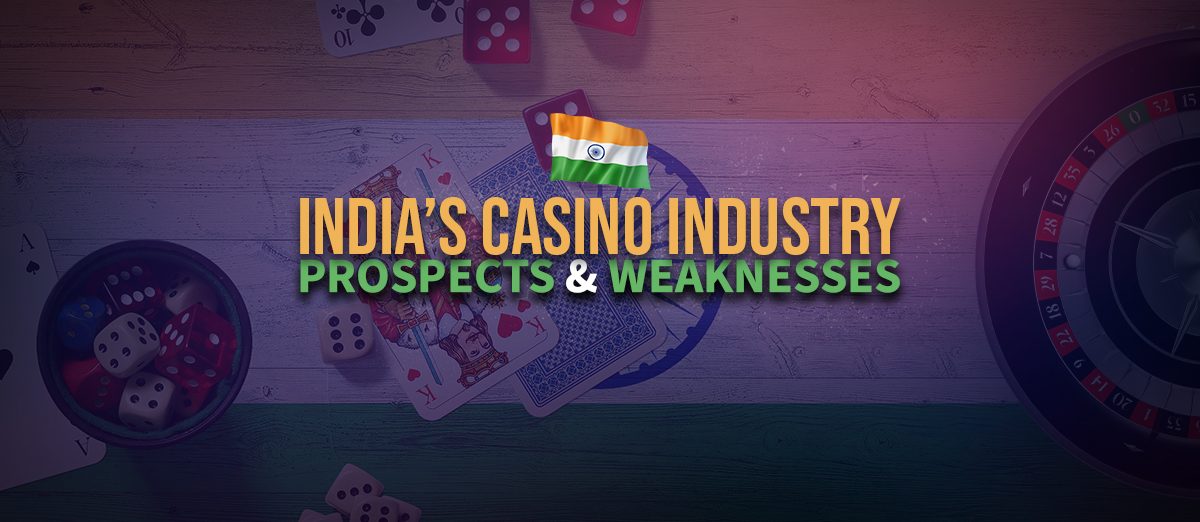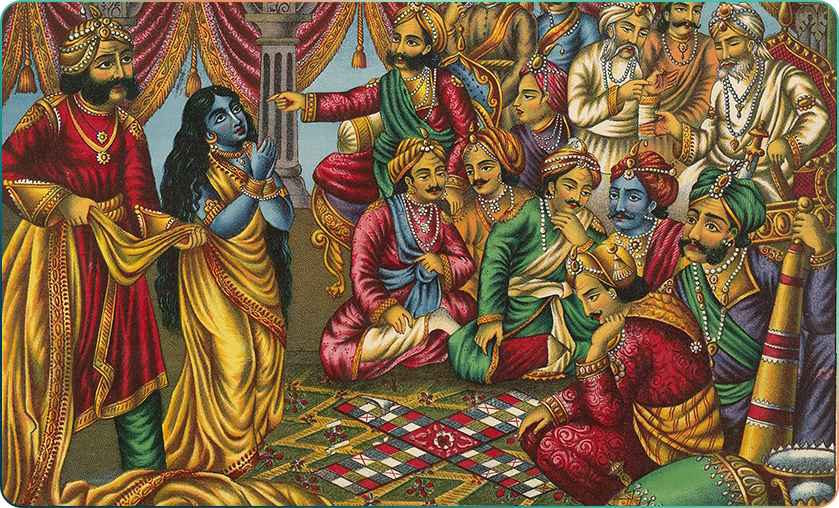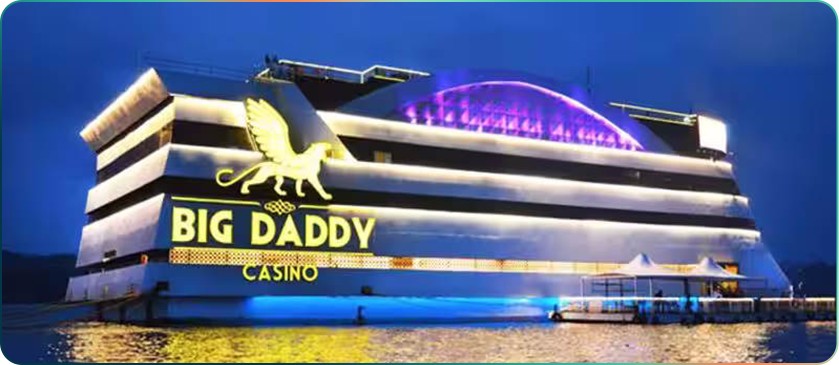The Immense Opportunities and Challenges of the Indian Gambling Market

India is now a country of over 1.4 billion, boasting the largest human population. Over the last couple of decades, the country has shown enormous economic progress, with GDP growth of over seven percent in most years.
With urbanization, a huge and rising middle class and with younger generations eager to spend, not to mention business-friendly government reforms, India has become one of the world's fastest-growing market economies.
Unlocking India's Gaming Potential
Today, India counts among the world’s five largest economies, with economists predicting that it will become the third-largest economy within the next two decades. While industries such as high-tech, textiles and apparel, telecommunications, as well as agriculture are booming in India, the same cannot be said about the legal gaming industry. Should the country loosen its controls on the gambling industry and create new laws, India will undoubtedly become the world’s largest gaming market.
The late Sheldon Adelson, former Chairman and majority owner of Las Vegas Sands is reported to have said that India has the potential to generate casino revenues ten times the scale of Macau’s Cotai Strip. Bear in mind that Mr. Adelson’s comment came while Macau's revenue was in excess of USD45 billion.
History and Evolution of Gambling in India
Although the incidence of gambling in India dates back at least thousands of years to the era of the Mahabharata (4000-1500 B.C.), legalized gambling in modern India is a recent phenomenon.
Gaming regulations in India, like in many other countries, are governed by individual states. While most states allow horse racing and lotteries to operate within their jurisdiction, legal casino gambling is restricted to three states.
Presently, online gaming falls in a regulatory grey area with no comprehensive legislation with respect to its legality. Games based on skills are allowed in most parts of the country, while games of chance are categorized under gambling and prohibited in most states.

Sports Betting and Online Gambling in India
Betting on sports and other events, albeit illegal in most Indian jurisdictions, has always been a part and parcel of the Indian consumer’s life. According to MyBetting.in, 88.4% of all Indian bettors are male. Just under 45% are between the ages of 18 and 24 years, while 32.5% are between the ages of 25 and 34.
As far as sports betting goes, betting on the game of cricket leads other sports by a long shot. There are plenty of other games to bet on in India, including football, basketball, badminton, and kabaddi.
According to the cricket betting analysis conducted by MyBetting.in, between 140 million and 370 million Indians partake regularly in betting on cricket. Limited opportunities exist for betting on cricket through legal channels. Nonetheless, official cricket betting generates around $3 billion in revenue.
The real big money is spent through illegal bookies. The illegal betting market on cricket in India is estimated to be around $150 billion annually. A single India-Pakistan cricket match can generate around $15 billion in betting activity. The three most popular betting sites in India are bet365, Betway, and 1xBet.
Online gambling is experiencing exponential growth in India. Online Gaming got a huge boost due to COVID-19. A 2021 report from KPMG Consulting states, “The pandemic, with all its tragic consequences, did end up providing a significant bump to online gaming, both globally and in India, as people across demographics took to gaming in a major way as a form of escapism and entertainment.”
Surge in Gambling Activity and Available Casino Games
According to Deloitte India, the biggest driving factors behind the surge in online betting in India are increased access to high-speed internet, increased access to smartphone devices, and a general increase in disposable income throughout the Indian population.
Another factor contributing to online gaming revenues in India is the increased regulation in many European countries. This, according to Chart Attack, “may seem to be an obscure reason, but the reality is the UK (UKGC), Italy (AAMS), Sweden (Spelinspektionen) and Germany (GGL) regulators are all placing heavy restrictions on gambling companies.” India’s demographics are also a major contributor.
Seventy-five percent of the Indian population is below the age of 45, which makes it one of the largest potential markets for online gaming in terms of volume. Amin Rozani, CEO and Co-Founder of Spartan Poker, estimates the online gaming revenues in India to be around the $3 billion mark.
As mentioned earlier, casino gambling is legal only within the jurisdictions of Goa, Sikkim, and Daman. Of these, Goa is the most popular gambling destination for tourists. Goa banned its residents from gambling in February 2020. Since more than 90 percent of India’s casino revenue comes from Goa, we will confine our discussion of land-based casinos to Goa.
The State of Goa permitted gambling in the State with the formation of the Goa, Daman, and Diu Public Gambling Act in 1976. In the year 1992, the Government of Goa started releasing gambling licenses to luxury hotels and establishments to run slot machines. In 1996, businesses were permitted to start operating table games like blackjack, roulette and poker in offshore casinos.
Currently, there exist 16 casinos in the State of Goa, three in Sikkim and one in Daman (awaiting government approval). Six of the 16 casinos in Goa are floating casinos. All gambling venues offer traditional international games such as blackjack, roulette, baccarat, and poker. Some uniquely Indian games, such as Teen-Patti (three-card poker) and Andar-Bahar, also form part of the product mix in Indian casinos. While slot machines do exist on Indian casino floors, they do not perform as well as they do in Western countries.

Potential for Strong Gross Gaming Revenue
Prior to the COVID-19 pandemic, Goa’s GGR was estimated to be around US$150 million. However, this figure appears to be far too conservative. Industry observers claim that current gaming revenues for Goa are somewhere between ₹30 billion to ₹35 billion (around US$435 million). Goa casinos attract the highest level of tax at 28 percent. With reference to gaming revenues, there appears to be a huge discrepancy between the reported revenues and the actual revenues.
In a note to subscribers, Grant Govertsen wrote, "We compare the Goa transition from riverboat to land-based as like the Midwest US riverboat transition story on steroids." Grant Govertsen continues, “We expect Goa to quickly transition to land-based casinos.” In another place, he added, “If integrated resorts would one day come to India, as they have in places like the Philippines, Singapore, Macau, and potentially Japan, they could generate GGR of up to US$17 billion a year."
Migration Factors and Leading Casino Companies
Several factors have thus far blocked the offshore to land migration of Goa’s six floating casinos. These include community opposition, lack of motivation on the part of government, arguments over where to locate the casinos, and opposition from other vested interests rooted in politics and religion. However, should the proposed migration occur, all casino competitors in Goa will be on a relatively level playing field.
Three companies operate the casinos in Goa: The Deltin Corp, Big Daddy, and the Pride Group. Deltin Group, a subsidiary of Delta Corporation, is the largest casino operator in India It is estimated that Deltin accounts for around 40 percent of Goa’s gross gaming revenues (GGR). Delta Corp Limited (Delta Corp) is the only listed Gaming and Hospitality company in India.
Delta Corp’s major portfolio of assets consisting of offshore casinos, land-based casinos and hospitality services come under the banner of Deltin Casinos & Hotels. Deltin Group has three offshore casinos, two land-based casinos and one 5-star hotel in Goa.
The company also owns a luxurious 5-star resort with a proposed casino (subject to regulatory approval) in Daman, and two more physical casinos, one each in Sikkim and Nepal. For the quarter ended Sept. 30, 2022, Deltin reported revenues of almost ₹3.38 billion (around $41 million), of which $33 million came from gaming operations.

Big Daddy has one ship that operates a live casino and one land-based casino that offers only automated games. Big Daddy is Deltin’s biggest competitor, accounting for around 35 percent of Goa’s casino revenues.

The third competitor, Pride Group, accounts for 25 percent of revenues. As of now, both Deltin and Big Daddy have very ambitious expansion plans in place, operating under the assumption that Goa will soon allow land-based integrated casino resorts. Should brick-and-mortar casinos be permitted in Goa, the gaming revenues could grow by ten times almost overnight.
Gambling Industry Regulation and Legal Issues
As things stand, gambling in India is very restricted, apart from categories such as lotteries and horse racing. The model is similar to the United States, where decisions regarding gambling are relegated to individual states. In India, the legislative powers are divided between the centre and the states under the Constitution of India, 1950.
Under its Seventh Schedule, the Constitution grants each state (province) of the country, the exclusive power to enact its own laws on "betting and gambling" for its own territory. A recent 145-page report from the Indian Law Commission (LCI) recommends licensing and regulation of gambling across the country as a way to curb the increase in illegal online betting activity.
There appear to be several benefits to licensing gambling in India. One key argument relates to the number of people involved in illicit gambling. The LCI has suggested that because laws regarding gambling are flouted so commonly, sports betting should instead become legalized (albeit strictly regulated).
A second argument relates to the amount of money involved. As discussed earlier, most gambling in India takes place illegally. This deprives the government of billions of dollars that it would make in taxes if the entire industry were properly regulated. Furthermore, if gambling were to be legalized, it would stop illegal (black) money being used or “laundered” in illegal sports betting, which is often used to fund terrorism and related nefarious activities.
The fourth argument for legalizing gambling is job creation. The casino industry in the small state of Goa generates in excess of 10,000 jobs and attracts thousands of tourists each year to the former Portuguese colony.
The final argument for legalizing and regulating gambling is that only 1-2 percent of the population seems to be negatively impacted by the activity—regardless of its legality. So, why should the government deprive the majority of Indians (and foreigners) of the pleasurable and mostly harmless pastime?
State of Online Gambling in India
While the legality of land-based casinos in various Indian jurisdictions is straightforward, the same is not the case with online gambling. Most Indian states make the decision to allow certain forms of online gambling based on whether the game involved is one of skill or one of chance. While most online gambling involves both skills and chance, this distinction makes the legality of online gambling a very fuzzy issue.
For now, games of skill are taxed 18 percent GST while games of chance are taxed at 28 percent. The Goods and Services Tax (GST) Council of India, which is the body that decides on GST rates, announced that India will levy a 28 percent tax on online gaming, casinos and horse racing and that the tax would be levied on full face value.
Union Finance Minister Nirmala Sitharaman made the announcement at the council's 50th meeting in New Delhi. While the date of this change going into effect has not yet been made public, this move will, according to most industry observers, have devastating impact on India’s online gambling industry, which, in recent years was showing 30-40 annual growth.
Until now, the Indian government has forbidden foreign companies from operating in the gambling sector. This restriction has held back the development of large integrated casino resorts like the ones in Macau, Singapore, and the Philippines. The benefits of foreign participation in the sector far outweigh the risks involved. Increased tax revenues, higher employment, and enhanced tourism are some of the most obvious advantages. As India has recently permitted foreign companies’ participation in industries such as insurance and retail, the same relaxation of rules could apply to casinos.
Final Thoughts
The world has now become aware of India’s economic prowess and soft power as the country celebrated its seventy-five years of independence. A large, mostly young population, much improved infrastructure, and exponentially growing middle class make the country a fecund market for most goods and services.
The immense opportunities within the gambling industry—both land-based and online—have scarcely been capitalized on. With the right legal framework, a sensible tax regime, and opening the sector to foreign competition, India could, in short order, become the world’s largest gambling market.





Review this Blog
Leave a Comment
User Comments
comments for The Immense Opportunities and Challenges of the Indian Gambling Market